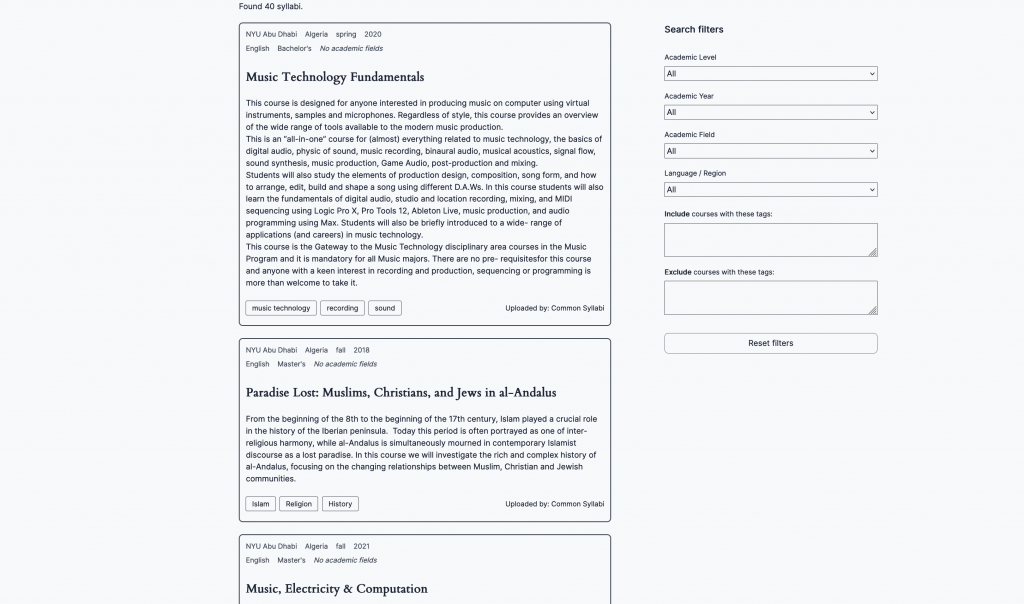The Mozilla Festival, which had been for a few years streaming online only, came to an IRL setting, in the Toolhuistuin in Amsterdam between the 20th—21st of June. I attended the second day of this conference exploring AI for a healthier, more democratic internet.
Creativity, copyright and generative AI with Creative Commons
The first session I attended was in the early morning, coffee and croissant in hand, making my way to the corner room which proved to be too small for the number of attendees eager to know more about the copyrights implications when creating with AI, and what could that mean for the commons and authorship. In the room overlooking the Ij, the group sat around a table was introduced to Creative Commons by the facilitator, Brigitte Vézina. Creative Commons is the organisation that provides Creative Commons licenses and public domain tools that give every person and organisation in the world a free, simple, and standardised way to grant copyright permissions for creative and academic works; ensure proper attribution; and allow others to copy, distribute, and make use of those works.
The roundtable was a free space for dialogue around guiding questions, although the first one took the entire session as flocks of people poured into the small room. When thinking of copyrights and creative agency within AI and generative image and language models, we can see how tensions would come up, both when speaking of input and output. Questions arise like the endless scarf in a magician’s pocket – how do classify human intervention and therefore copyrighted material? The table was invited to think together: is AI serving or endangering the commons? People contributed with different provocations and questions-answering-questions, bringing up the role of AI in the arts and the different stages of the creative process, when would it aid or impede. Overall, there was a red thread in thinking and talking about how AI can bring about an appropriation of commons, through extraction. But how could AI give back to the commons? Examples that were mentioned include how Wikipedia’s AI input content could feed back into building more Wikipedia articles, or the need for more global strategies in “taxing” the profits of companies like OpenAI, perhaps in building a global climate emergency fund.
Overall, the discussion mainly revolved around input data, texts, images that feed into AI generators, and output (texts and images generated by these models) did not get discussed very much, perhaps we needed another hour. The little moderation of the session and a more open discussion model meant that only some people ended up speaking from their perspective and specific case. I would have appreciated more guiding questions and a sense of shared learning, amongst the diverse voices in the room.
Common Syllabi: archiving and sharing academic resources with Pierre Depaz
The second session of the day, towards the end of the morning, happened in the same room, but I found it emptier this time — which was actually pleasant, more intimate roundtables usually make up for better conversations.
Pierre Depaz, artist, and researcher working for NYU Berlin, leads us into Common Syllabi: an open-source project and platform which aims to make course materials more accessible. After a quick round of introductions (as smaller attendees allow for familiarity), we were first exposed to the problem that motivated starting Common Syllabi: we find research papers accessible and open, sharable, and networked (at least within the academic confines of access), they are often the academic currency of value. Yet, while researchers are often teachers as well, we see a gap between finding papers and teaching materials. Teachers are not incentivised to share them in the same way — this gap is reflected in digital infrastructures, as resources such as Course Hero or Studocu are mainly geared towards students, and not many resources are available from and for tutors. To this problem, we might also consider the tensions in the fact that syllabi are often the property of the faculty, and institutions hold the means of distribution. Even though we can create individual changes and share learning with one another, ultimate change in these logics must come systemically.
Supported by the Prototype Fund and the Ministry of Education and Research in Germany, Common Syllabi is an example of how tech innovation and sharing platforms can also question the academic hierarchies of value, which put citations and papers as highly valuable yet don’t recognise course material as equal in the academic value system. This project would also serve as archiving platform when university infrastructures fail to remember and collect past classes and respective materials. We did a round through the group, identifying tools we already use, and problems that would stop educators from sharing their courses (with teaching being famously underpaid or prone to overworking). It was interesting that only one teacher was present in the roundtable, but this platform can of course be applied to all sorts of educational settings and materials, from workshops to learning sessions.

Screenshot, Common Syllabi website
Against Recursive Colonialism in Tech: Mapping Ecological Practices of Friction and Reparations
The afternoon session explored the impact of big tech in environmental disasters in Brazil, its relationship with big mining, and the potential of AI in surveilling and protecting indigenous areas, as well as the need to bring plurality to AI development. Guiding us through these questions was Lori Regattieri researcher, founder of Eco-Midia in Brazil and Mozilla Fellow in Trustworthy AI, and Bábara Paes, from the non-profit organisation The Engine Room. The session was really well attended with a lot of people standing up around the roundtable. It was fulfilling to see that topics pertaining to decolonisation and the Global South are popular, in an otherwise Western-centric conference. Lori and Bárbara introduced themselves and the session had a very interesting theoretical framing and introduction, a pleasant dynamic that gave us a lot of content — listening in the afternoon became exactly what I needed.
Lori introduced the notion of technology as “sociotechniques” and how their work in critical AI builds from an interdisciplinary approach, when centring algorithmic norms in a global climate emergency, considering the many Souths of the world. Lori says on Eco-media’s website: “Questioning myths and fables about progress in the West, based on the teachings of Milton Santos, Denise Ferreira da Silva and Gilbert Simondon, instead of the global village, I consider the perversity of globalisation, which homogenises and selectively organises the conditions for the populations of the world to experience the concreteness of time and the achievements of the accelerated development of information and communication technologies.” — we went further in some of these references, mainly Denise Ferreira da Silva’s Towards a global idea of race: modern man as displacement of Otherness.
AI technologies work through and with colonial instrumentality — making opaque the where, which, and how, certain decisions are made — hence the importance of bringing plurality in the scale of AI and its levels of extraction, from the earth and from humans (moderators, AI trainers). Additionally, there is a lot of violence being enacted at the intersections of migration, tech, and climate justice, visible in biometric surveillance and border control, climate change and displacement. In a big data world and reality, descriptors such as formality and efficiency are placed as epistemological procedures, promoting “transparency” as universality.
In centring indigenous sovereignty, data can serve climate watching and surveillance, and thus feed into public policy to protect indigenous territories and global climate, an urgent question in Brazil and beyond. After sharing some examples and references, such as indigenous chiefs’ video-manifestos or the Movimento Plantaformas, a project that seeks to demonstrate that the digital empowerment of Amazonian communities gives these populations the autonomy to recognise which environmental problems most affect their territory and how the community itself, can create and apply solutions more suited to their realities. The group was then invited to share, through collective mapping, learnings and tensions from our own experiences, contributing to data justice.

An iron ore mine in Pará, Brazil. (Image by: José Rodrigo Zermiani | Agência Vale)
Other inspiring things at MozFest
At the end of the day, I more casually sat in yet another packed room, on the floor, and listened to the inspiring energy of Sherry Wong, who also read this piece, a poetic reflection on AI.
Attendees were gifted an inspiring publication which elaborates and reflects on a healthier, more democratic Internet. You can see it online here.

Artist: Sherry Wong
Photographer: John Janca


